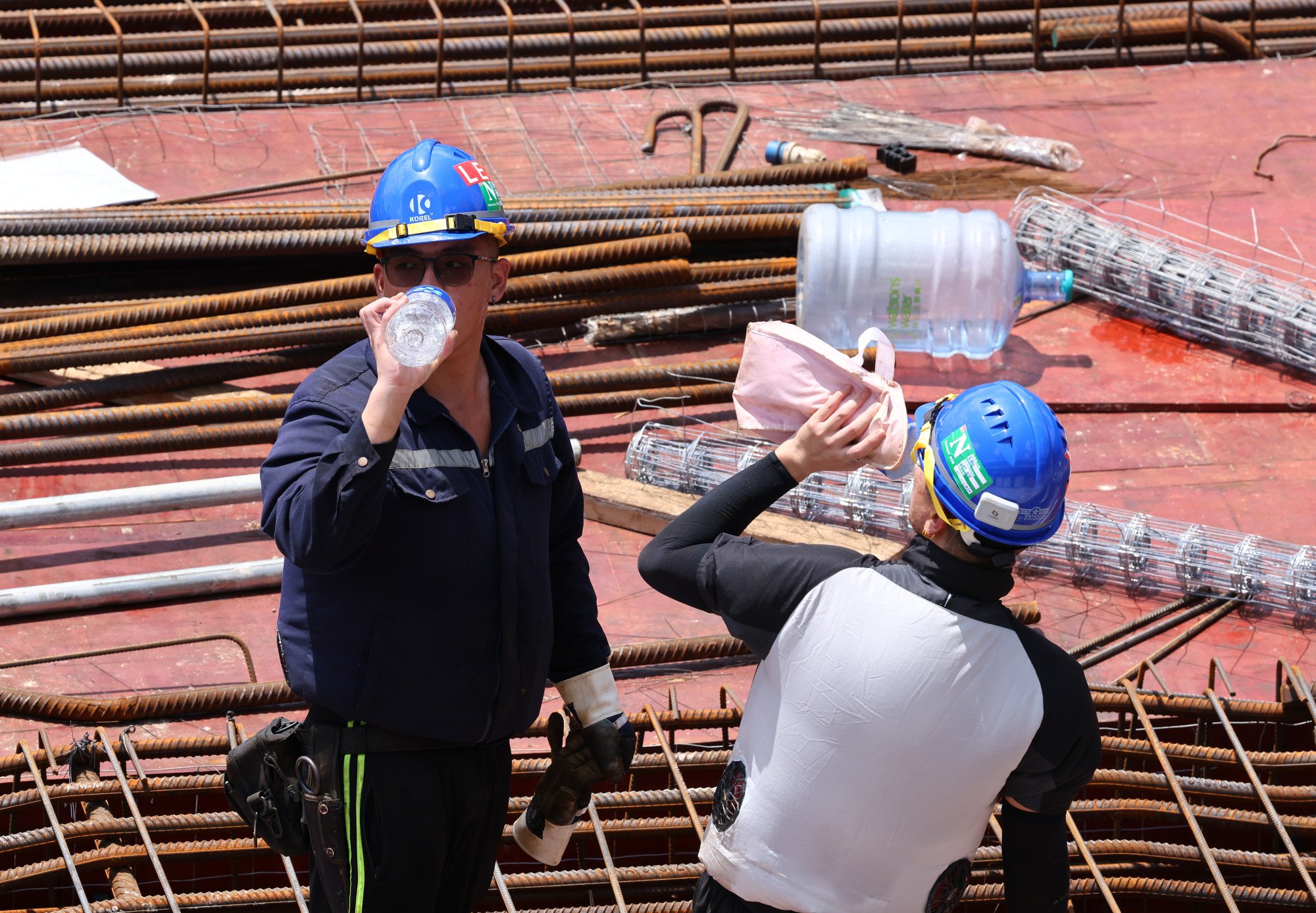Climate projections from the Observatory suggested that Hong Kong could see as many as 80 very hot days by mid-century under the highest greenhouse gas emission scenario.
Leung Wing-mo, a former assistant director of the Observatory, said climate change played a “vital role” in the city’s very hot days and growing number of heatwaves.
“Without exception, heatwaves are the extreme weather that is strongly associated with global warming,” he said.
2. How can you stay cool?
Edmund Lam Wing-wo, a family doctor, said that proper hydration was key to staying cool, as it allowed the body to dissipate heat by sweating.
Lam also recommended wearing light clothes while outdoors, and avoiding direct noon sunlight.
He added that when indoors, make sure there was air-conditioning or proper ventilation.
Lam said that parks equipped with misting areas and cooling patches used for fevers could provide some respite, because they offer a similar effect to sweating by dissipating heat from the skin.
The Observatory recommended applying sunscreen with an SPF of at least 15, while also wearing a wide-brimmed hat and sunglasses to help stave off UV radiation which could lead to sunburns.
The forecaster also suggested residents make use of heat shelters if necessary. There are currently 19 temporary heat shelters operated by the Home Affairs Department which can be opened when very hot weather warnings are in effect.

3. Will cold drinks help?
While many people may desire to reach for iced tea or other sugary drinks on days when the heat is strong, Dr Lam has warned that these beverages may have the opposite effect.
Drinks such as coffee, tea and alcohol had a diuretic effect that could release water from the body through urination when the key is to stay hydrated, Lam said.
“Plain water is good enough,” he added.
He said residents could still enjoy those summery sweet beverages, as long as they were also drinking equal amounts of water.
4. Which foods should be eaten, and what should be avoided?
Residents should try to prioritise fluid intake over salt on hot days, Lam said.
It is best to minimise junk foods, including those that are oily or salty, according to Lam. Instead, residents should try to eat more fresh vegetables and fruits such as watermelons and celery, he said.
But he added that as long as residents were drinking enough water, food restrictions were not as important to observe.
5. How about a jump in the pool?
Hong Kong summers are often associated with hordes of residents rushing to their nearest pool or beach for a swim in the water in a bid to cool off from the heat.
The city has 45 public swimming pools and 42 beaches managed by the Leisure and Cultural Services Department.
Dr Lam said that swimming in water was a good way to lower our bodies’ temperatures on very hot days, but added it was still important to observe how you feel.
He said that one might still suffer from conditions such as heatstroke while swimming.
“If you are in the water and still feel hot, then better to go to the shade.”
6. What activities should you avoid?
Dr Lam said that it was important to avoid physical exertion as much as possible when the mercury crept up to higher levels.
He advised residents to arrange their schedules to avoid direct sunshine, and avoid activities such as hiking, running or football after 10am and before 4pm.
Employees working in roles that require physical exertion or work in the open should take a short rest every hour, he said.
Last year, the Labour Department issued a new three-tiered warning system to reduce the risk of heatstroke among outdoor workers.
7. What health signs should you look out for?
The Centre for Health Protection said that when the environment became “extremely hot,” it could lead to heat exhaustion or heatstroke because the human body could not effectively cool down.
Symptoms to watch out for include dizziness, headache, nausea, shortness of breath, and confusion, according to the Observatory.
Lam added that those experiencing heatstroke symptoms might display redness in the face and feel discomfort on the back of their neck.
If the body’s temperature is not brought down, the heat will cause the brain to respond “ineffectively”, resulting in loss of orientation or even a loss of consciousness. In serious cases, it can even lead to death, according to Lam.
Anyone experiencing heatstroke symptoms should find a cool, well ventilated area to rest in to lower the body’s temperature. He also recommended remaining in a seated position or lying down, to avoid sudden changes in blood circulation.
High-risk groups included the elderly, children, pregnant women, and those with chronic illnesses, he added.

Post a Comment